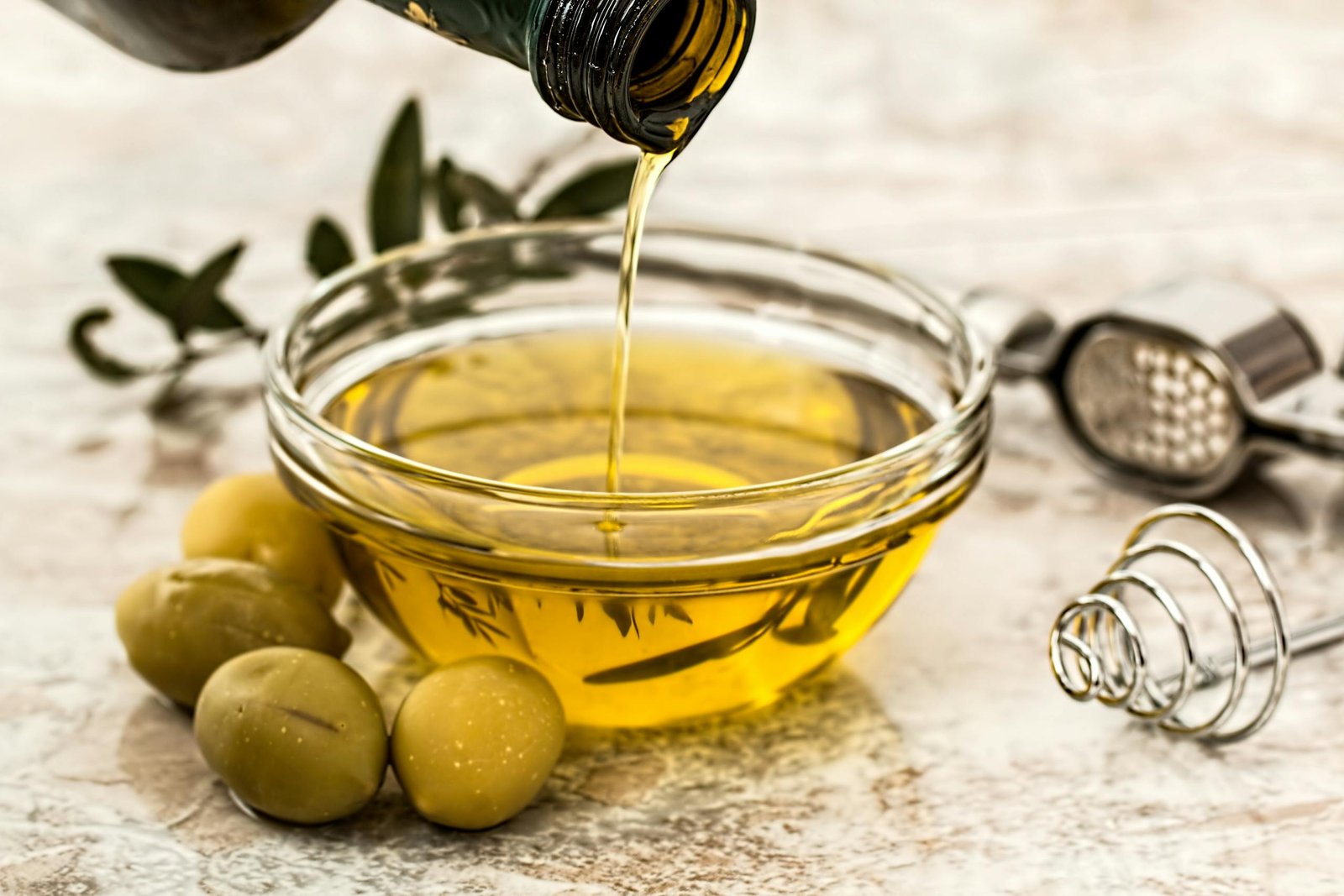Healthy Cooking Oils and Their Impact on Heart Health
Cooking oils are fundamental components of our diets, influencing not only taste and texture but also our overall health, especially heart health. With a plethora of options available, it’s crucial to discern the differences between various cooking oils and their effects on cardiovascular well-being. This article aims to explore the world of healthy cooking oils, examining their composition, benefits, and impact on heart health.
Understanding Healthy Cooking Oils:
- Composition:
Cooking oils primarily consist of fats, categorized into saturated fats, monounsaturated fats, and polyunsaturated fats.
– Saturated fats: Often solid at room temperature, found in foods like butter and coconut oil, and linked to increased heart disease risk.
– Monounsaturated fats: Liquid at room temperature, found in olive oil, avocado oil, and peanut oil, and known for their heart-healthy benefits.
– Polyunsaturated fats: Also liquid at room temperature, include omega-3 and omega-6 fatty acids found in oils like soybean, corn, and sunflower oil.
- Impact on Heart Health:
– Monounsaturated fats: Consuming these fats instead of saturated and trans fats improves cholesterol levels, lowers blood pressure, and reduces heart disease risk. Olive oil is associated with decreased cardiovascular events and mortality.
– Polyunsaturated fats: Omega-3 fatty acids, found in polyunsaturated fats, reduce inflammation, lower triglycerides, and prevent blood clots, reducing heart disease risk.
– Saturated fats: While necessary in moderation, excess consumption raises LDL cholesterol and heart disease risk.
Healthy Cooking Oils for Heart Health:
- Olive Oil:
– Rich in monounsaturated fats, especially oleic acid, associated with reduced heart disease risk.
– Regular olive oil consumption correlates with lower cardiovascular disease incidence.
– Use extra virgin olive oil for low to medium-heat cooking and salad dressings.
- Avocado Oil:
– High in monounsaturated fats and antioxidants like vitamin E, beneficial for heart health.
– lowers blood pressure, lowers inflammation, and raises cholesterol. Its high smoke point makes it appropriate for cooking at high temperatures.
- Canola Oil:
– Low in saturated fat, high in monounsaturated fats, and linked to improved cholesterol and heart health.
– Neutral flavor and high smoke point make it versatile for cooking and baking.
- Flaxseed Oil:
– Rich in ALA omega-3 fatty acids, known for anti-inflammatory properties and heart health benefits.
– Helps lower blood pressure, reduce inflammation, and improve blood vessel function.
– Ideal for salad dressings and finishing oils to preserve flavor and nutrition.
- Walnut Oil:
– Contains ALA omega-3 fatty acids, antioxidants, and polyphenols beneficial for heart health.
– Improves cholesterol levels, reduces inflammation, and protects against heart disease.
– Adds a nutty flavor to salads, dips, and marinades.
- Coconut Oil:
– Despite being high in saturated fats, coconut oil contains medium-chain triglycerides (MCTs), which may have neutral or even beneficial effects on heart health.
– Research on coconut oil’s impact on heart health is mixed, with some studies suggesting it may raise LDL cholesterol levels.
7. Grapeseed Oil:
– Grapeseed oil is rich in polyunsaturated fats, particularly omega-6 fatty acids, which may help reduce LDL cholesterol levels.
– Its high smoke point makes it suitable for high-heat cooking methods like frying and sautéing.
- Sesame Oil:
– Sesame oil is rich in monounsaturated and polyunsaturated fats, along with antioxidants like sesamin and sesamol.
– Studies suggest that sesame oil may help lower blood pressure, reduce inflammation, and improve cholesterol levels.
- Sunflower Oil:
– Sunflower oil is high in polyunsaturated fats, particularly omega-6 fatty acids, which are essential for heart health.
– Its mild flavor and high smoke point make it suitable for various cooking methods, including frying and baking.
Selecting appropriate cooking oils significantly impacts heart health. Opting for oils rich in monounsaturated and polyunsaturated fats, like olive oil, avocado oil, and canola oil, can improve cholesterol levels, reduce inflammation, and lower heart disease risk. Incorporating these oils into cooking not only enhances flavor but also supports cardiovascular well-being. By making informed choices about cooking oils, individuals can proactively maintain heart health for years to come.




